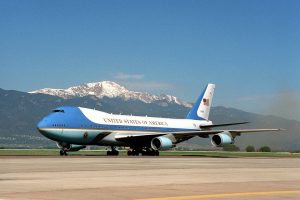 The White House has signed a deal with Boeing to build two new Air Force One jets. In a press release, a White House spokesperson explained that President Trump had negotiated a $3.9 billion deal with the aerospace manufacturing company. While that may seem like a steep price tag, it’s expected to save U.S. taxpayers an estimated $1.4 billion.
The White House has signed a deal with Boeing to build two new Air Force One jets. In a press release, a White House spokesperson explained that President Trump had negotiated a $3.9 billion deal with the aerospace manufacturing company. While that may seem like a steep price tag, it’s expected to save U.S. taxpayers an estimated $1.4 billion.
It’s believed that the two jets used in this deal were originally intended for Russia. When Boeing was unable to sell them to Russia, however, it sought a new buyer: the White House. As a result, the White House was able to capitalize on this situation by offering a below-market price for the jets.
Back in 2016, Trump tweeted about the high cost of the Air Force One project, saying that he would cancel it because of the high cost. Previous estimated had placed the cost of Air Force One upgrades to be roughly $5 billion. Through negotiations, however, the White House was able to secure a deal with Boeing for $3.9 billion, offering huge cost-savings benefits to taxpayers.
Shortly after the White House announced the new $3.9 billion deal, Boeing issued its own statement, saying it was proud to serve the United States by building the next generation of Air Force Ones.
“Boeing is proud to build the next generation of Air Force One, providing American Presidents with a flying White House at outstanding value to taxpayers. President Trump negotiated a good deal on behalf of the American people,” Boeing tweeted following the announcement.
Before becoming president, Trump met with several executives in the aerospace industry to discuss ways to lower the cost of the Air Force One. Following these meetings, Boeing said it would lower its cost down to $4 billion.
The Air Force One has origins dating back more than a century, during which President Roosevelt became the first U.S. president to fly in a plane. In 2015, the Boeing 747-8 was chosen by the White House for the next generation of Air Force Ones. There was some debate over whether Boeing or Airbus would win the contract. At the time, only the Boeing 747-8 and Airbus A380 were large enough to meet the needs of the Air Force One. With the deal signed, though, it’s safe to say that Boeing will built the new generation of Air Force Ones. It’s unclear when Boeing will deliver these new jets, though the White House’s existing Air Force One is expected to remain in serve through 2024.



